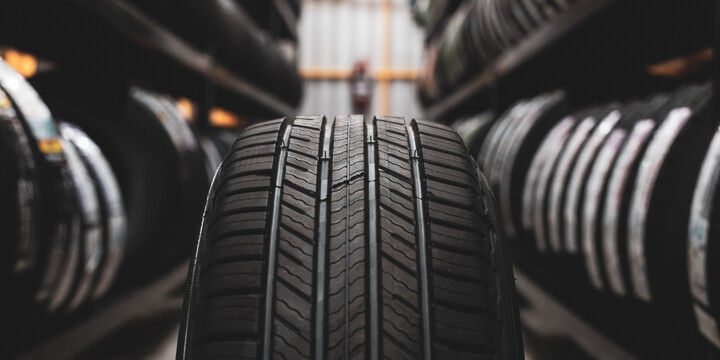
How to Choose the Right Tyres for Your Car
FREE Car History Check
See MOT history, valuations, detailed specs and more… AND upgrade to see if any vehicle has been stolen, has finance or has been written off from just £3.99
Choosing the right tyres can seem overwhelming, with so many brands and types available, but it doesn’t have to be. From Bridgestone to Pirelli, we've got the info you need to make the right choice, and keep your car running smoothly.
Does it matter what tyres you get?
Yes, it does matter what tyres you get for your car. The tyres of a vehicle provide the only contact between your car and the road, so having good quality tyres with appropriate tread and pressure are essential for safety and performance. Choosing the correct type of tyre for your car can make a huge difference in terms of handling, fuel efficiency and safety.
When selecting tyres, it's important to consider the size, type, performance and budget available. The size of the tyre is determined by the width and diameter of the wheel rim it will fit onto – this information should be stamped on the side of the existing tyre. The type or style of tyres depends on the sorts of terrain and weather conditions you'll be driving in, as well as your personal preference.
Finally, your budget will play a large role in the type of tyre you decide on. Tyres can be expensive, though the higher end products often offer superior performance and safety features.
Do cheap tyres affect handling?
Yes, cheap tyres can affect the performance of your car. Low-end tyres are often made with low-grade materials that aren't as durable or responsive as more expensive options. This means you may experience reduced grip in wet conditions or less precise handling on corners, both of which increase the risk of an accident.
Therefore, it's important to invest in good quality tyres that have been designed specifically for your car's make and model. This will ensure safer handling and better overall performance, giving you peace of mind on the road.
How often should tyres be replaced?
Your tyres should be replaced when the tread depth of each tyre has worn down to a minimum level. This varies depending on the type of vehicle, but is generally between 1.6 and 2mm. If you have any doubts about the condition of your tyres, it's important to get them checked by a professional and replaced as soon as possible if needed.
In addition to regularly checking your tyres, you should also make sure they are properly inflated according to the manufacturer's recommendations. This can improve fuel efficiency and provide a smoother ride, as well as ensuring better handling and safety on the road.
What is the best brand tyre for an SUV?
When it comes to choosing the best brand tyre for an SUV, it's important to consider various factors such as size, performance, and the terrain that you drive on. Depending on your individual needs and preferences, some brands may be more suitable than others.
Pirelli tyres are known for their superior performance in wet conditions, while Continental tyres provide excellent handling and control. Michelin tyres are known for their longevity and durability, making them an ideal choice for those who drive off-road or in rough terrain. For a balance of performance, reliability, and value, Bridgestone offers a wide selection of SUV tyres to suit any driver’s needs.
Which brand of car tyre is best?
The answer to this question really depends on a number of factors, including the type of car you have, the conditions you will be driving in and your budget. In general, though, there are a few tyre brands which stand out among the rest due to their performance and value.
Bridgestone tyres are reliable and have some great traction on wet roads, while Michelin have a good balance of price and performance. Continental tyres offer excellent performance on all types of surfaces, while Pirelli tyres are superior when it comes to cornering and handling. Ultimately, the best tyre for you is one that meets your needs and fits within your budget. Be sure to do some research and find out which brand best suits your needs before purchasing.
Also, don't forget to compare the different types and sizes of tyres available for your car. Different cars require different tyre sizes, so it's important to make sure you get the right ones. Tyres are also available in a range of tread patterns, each designed to suit different conditions - so make sure you choose the right tread for your needs.




















